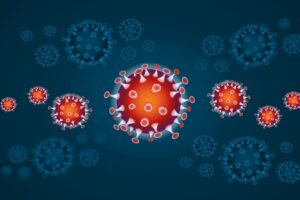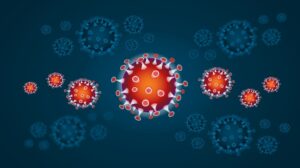The Science of Immunity: How Lifestyle Changes Can Enhance Your Immune Response
Introduction
The immune system is a complex network of cells, tissues, and organs that work together to defend the body against pathogens, including bacteria, viruses, and other foreign invaders. Understanding how to bolster our immune response through lifestyle choices is crucial, especially in an era marked by frequent global health crises. This article explores the science of immunity, the factors that enhance immune response, and the lifestyle changes that can effectively strengthen our defense mechanisms.
The Immune System Explained
What is Immunity?
Immunity refers to the body’s ability to resist harmful microbes or viruses. It can be categorized as innate immunity, which is present from birth, and adaptive immunity, which develops over time as a response to exposure to pathogens.
-
Innate Immunity: This provides the first line of defense against infections. It includes physical barriers like skin, chemicals in the body, and immune system cells that attack foreign invaders in a generic manner.
- Adaptive Immunity: This is more specialized and involves the development of memory cells that can remember past infections. It is activated after exposure to specific pathogens and leads to a stronger and more rapid response upon future encounters.
Immune Cells: The Body’s Defenders
Several types of cells play crucial roles in the immune response, including:
-
White Blood Cells (Leukocytes): Broadly categorized into lymphocytes (B cells and T cells) and phagocytes (like macrophages).
-
B cells: Responsible for producing antibodies, which target specific pathogens.
-
T cells: Play a central role in cell-mediated immunity, killing infected host cells and activating other immune cells.
- Macrophages: Engulf and digest pathogens and dead cell debris.
The Immune Response
When pathogens enter the body, the immune system recognizes antigens (substances that provoke an immune response) and mounts a response. This response can be immediate or take days to weeks, depending on whether it’s innate or adaptive.
The Factors Influencing Immunity
Several factors influence our immune response, including genetics, age, hormonal changes, and the microbiome. Here, we will elaborate on some lifestyle factors we can control.
1. Nutrition
A well-balanced diet is essential for immunity. Certain vitamins and minerals play critical roles:
-
Vitamin C: Found in citrus fruits, bell peppers, and broccoli, it enhances the immune system by supporting various cellular functions and promoting the production of antibodies.
-
Vitamin D: Often referred to as the "sunshine vitamin," it modulates the immune response and can lower the risk of respiratory infections. Sources include sunlight exposure and foods like fatty fish and fortified dairy products.
-
Zinc: This mineral is crucial for the development and function of immune cells. Foods rich in zinc include meat, shellfish, legumes, and seeds.
- Probiotics: These beneficial bacteria found in yogurt and fermented foods can enhance gut health, which is closely linked to immune function.
2. Physical Activity
Regular exercise is known to boost immune function. Moderate, consistent physical activity can:
-
Promote good circulation and the efficient transport of immune cells throughout the body.
- Reduce chronic inflammation and help the body handle stress better.
Studies have shown that individuals who engage in regular, moderate exercise tend to have better immune responses than those who lead sedentary lifestyles.
3. Sleep
Sleep is another critical factor in immune health. During sleep, the body undergoes various restorative processes:
-
Sleep enhances the production of cytokines, proteins that regulate immune responses and inflammation.
- Lack of sleep can decrease the effectiveness of the immune response, making one more susceptible to infections.
To improve sleep quality, individuals should aim for 7-9 hours of restorative sleep per night and develop a consistent sleep routine.
4. Stress Management
Chronic stress can have detrimental effects on immunity. The stress hormone cortisol, when elevated, can suppress the effectiveness of the immune system. Stress management techniques include:
-
Mindfulness and Meditation: Practices that promote relaxation can lead to reduced stress and improved immune function.
-
Physical Activity: As mentioned earlier, exercise can also serve as a powerful stress reliever.
- Social Connections: Maintaining healthy relationships and engaging in social activities can buffer the effects of stress.
5. Avoiding Harmful Substances
Certain lifestyle choices can hinder immune function and overall health:
-
Smoking: It damages lung tissue and disrupts immune responses, increasing susceptibility to respiratory infections.
-
Excessive Alcohol Consumption: High levels of alcohol can impair immune cell function, leading to a higher risk of infection.
- Sedentary Lifestyle: Lack of physical activity can weaken the immune response.
The Connection Between Gut Health and Immunity
The gut microbiome plays a significant role in regulating the immune system. A diverse microbiome contributes to a well-functioning immune response.
1. The Gut-Immune Link
-
Barrier Function: The gut lining serves as a barrier to pathogens. A healthy microbiota supports this barrier, preventing harmful bacteria from crossing into the bloodstream.
- Immune Cell Regulation: Gut bacteria produce metabolites that can modulate immune cell activity, enhancing responses to infections.
2. Enhancing Gut Health
To improve gut health, individuals can:
-
Incorporate more fiber-rich foods such as fruits, vegetables, and whole grains.
-
Consume fermented foods like yogurt, kimchi, and sauerkraut to promote beneficial bacteria.
- Consider prebiotics and probiotics, which can further support gut health and by extension, a robust immune response.
The Role of Vaccination
Vaccination plays an essential role in priming the immune system. Vaccines introduce a harmless component of a pathogen, training the immune system to recognize and fight the actual pathogen when exposed.
1. Types of Vaccines
-
Live-Attenuated Vaccines: Use weakened forms of the pathogen (e.g., measles, mumps, rubella).
-
Inactivated Vaccines: Use killed pathogens (e.g., hepatitis A).
- mRNA Vaccines: Teach cells to produce a protein similar to a part of the pathogen, prompting an immune response (e.g., COVID-19 vaccines).
2. The Importance of Vaccination
Vaccination is crucial not only for individual immunity but also for community immunity (herd immunity). High vaccination rates can protect vulnerable populations who cannot be vaccinated.
Conclusion
Understanding the science of immunity and the factors affecting it empowers individuals to make informed lifestyle choices that can enhance their immune response. By focusing on proper nutrition, regular physical activity, quality sleep, stress management, and avoiding harmful substances, we can significantly improve our overall health and resilience to infections.
Additionally, the interplay between gut health and immunity emphasizes the importance of maintaining a balanced diet rich in fiber and probiotics. Finally, embracing vaccination as a lifelong preventative measure further solidifies our immune defenses against various diseases.
In an ever-evolving world with emerging pathogens and health challenges, harnessing the power of lifestyle changes offers a proactive approach to safeguarding our health and wellbeing.
References
- Nature Reviews Immunology: Nutrition and immunity
- American Journal of Lifestyle Medicine: The impact of physical activity on immunity
- Sleep Health: The role of sleep in immunity
- Psychosomatic Medicine: Stress and immune function
- Frontiers in Immunology: The gut microbiome and immune system
- Centers for Disease Control and Prevention: Vaccines and Immunizations
(Note: If you’d like specific citations or a different focus, please let me know!)


























Add Comment